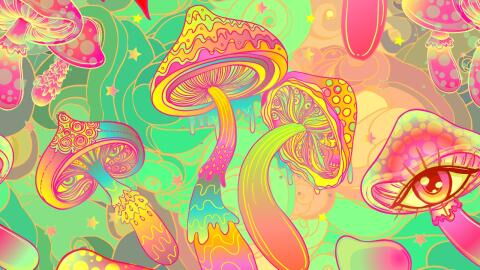Diogenes syndrome is a combination of both psychological and behavioural disorders. The afflicted individual suffers from two associated disorders: negligence, which is displayed by extreme neglect of both personal hygiene and that of their home, and syllogomania, which is a type of obsessive-compulsive disorder that results in the unhealthy accumulation of objects and rubbish.
Discover our latest podcast
People with Diogenes syndrome keep a home in such an abnormal state of unhealthiness that it can disturb their entire neighbourhood. The excessive accumulation of all kinds of objects, absence of housekeeping, and spoiled food, waste, and sometimes even human and animal excrement lying around produce foul odours. These individuals allow their homes to be filled with such large amounts of rubbish and objects that it can reach the point that they can no longer move around their homes.
WHO CAN BE AFFECTED?
Diogenes syndrome affects all social classes. The socio-economic status of the sufferer is not related to the syndrome. Sufferers can have a good job and a high income. Studies have shown that neither profession nor financial situation play a role in triggering this syndrome. Diogenes Syndrome has been observed in the poorest people living in the smallest of apartments, as well as in wealthy people living in mansions.
Although young people can sometimes be afflicted with Diogenes syndrome, it mainly occurs in people over the age of 60 years old, in particular between the ages of 70 and 80. Studies have shown that women are more frequently affected than men (two females for every male). This discrepancy can be explained, however, by the fact that women have a higher life expectancy than men.
According to researchers, 75% of people suffering from Diogenes syndrome live alone. Included in this statistic is a high number of widowed women. Only 10% of sufferers live with a significant other. It has also been observed that the onset of Diogenes syndrome usually happens after an existential or social breakdown (death of a loved one, mourning, loss of employment, loss of social status, etc.)
SYMPTOMS
Diogenes syndrome can be difficult to diagnose as the person may have an acceptable level of personal hygiene, while their home is in a state of filth and disarray. Reports of Diogenes syndrome are usually made by friends or family, with being confirmed after a home visit.
Other clinical signs of Diogenes syndrome include:
-Neglect of personal hygiene and that of housing
-Compulsive accumulation of objects or a tendency to collect anything and everything
-Social isolation
-A denial of reality and an absence of shame regarding their quality of life and living conditions
-A refusal to accept any outside help
TREATMENT
People with Diogenes syndrome tend to refuse any outside help, as well as refuse to admit that they have a problem. Care and treatment can therefore be complicated.
After a person’s home is cleaned up, social services and other associations will intervene. They do this primarily by helping the individual recreate social bonds, and by keeping them from falling back into their tendency to accumulate objects and rubbish. In some cases, psychiatric help is necessary.















